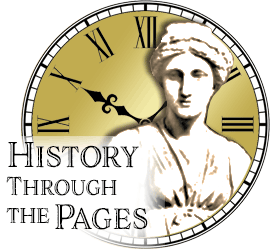This blog was originally written for THE SPARK newsletter for Arizona State University

“Listen, my readers, and you will hear
of that awful thing you’ve dreadfully feared.
You cannot run, in this edition, – alas!
History has met your English Lit. class.”
Indulge me with your kindness. I am far from the days of my angsty high school poetry. For me, April has always been about celebrating National Poetry Month. Poetry is quite an extraordinary art form. It fills you with emotions; it evolves into songs when set to music it teaches you. Since the ancient days of human intellect, we write and record history within poetry. We have all sat through lectures of The Iliad and the Odyssey, enjoyable for some and worse than a root canal for others. Last month I dove into the play of Julius Caesar by Shakespeare written in poetic verse. This month, I present poems of early American history.
The Midnight Ride of Paul Revere
By Henry Wadsworth Longfellow
“Listen, my children, and you shall hear of the midnight ride of Paul Revere…”
On April 18, 1775, Patriot leader, Joseph Warren, received reports that the British were attempting an attack on the Boston Harbor. Warren called upon the aid of Paul Revere and William Dawes to sound an alarm. Revere rode through the Boston Harbor into Charlestown and Dawes across Boston Neck. A lantern signal at the Old North Church had been designed to indicate how the British were attacking, by land or by sea. The British were being rowed across the harbor. This message was already traveling across Boston before Revere and Dawes began their journey that night. So what makes Paul Revere the solo heroic messenger of the poem?
The poem was written almost 100 years later in 1860 by Harvard professor, Henry Wadsworth Longfellow. Its purpose was not to immortalize Revere as a hero, but to use this story to warn the Union of America’s disintegration into Civil War. Details were altered to fit the poem’s structure. Revere shouted, “The Regulars are coming out!” not “The British are coming!”. Historians still question why Longfellow chose Revere to highlight in his poem. Many speculate that it was because he continued to work for the good of the newly founded America even after the Revolution. One other thought that plagues me is, what are you going to rhyme with Dawes?
Understand, the poem is reworked to fit the purpose Longfellow wanted it to, but historians know what really happened on that night. It is still a significant piece of American literature because it reminds us what is important to remember Longfellow’s message:
“So through the night rode Paul Revere;
And so through the night went his cry of alarm
To every Middlesex village and farm,—
A cry of defiance, and not of fear,
A voice in the darkness, a knock at the door,
And a word that shall echo forevermore!”
O’Captain my Captain
By Walt Whitman
“O’Captain my Captain! The fearful trip is done! The ship has weather’d every rack, the prize we sought is won..”
Fans of the film, The Dead Poets Society, may be familiar with this poem. On November 4, 1865, Walt Whitman published it in his book of selected poetry, Sequel to Drum-Taps. The poem’s imagery suggests the setting is on a ship at sea after a storm. In reality, the poem was written as an elegy to commemorate the death of Abraham Lincoln. The theme symbolizes experiencing victory and loss simultaneously. While the country was celebrating the end of the war, the joy was swiftly abrupted with the assassination of Lincoln.
Much of Whitman’s work is inspired by and dedicated to the people and tragedies of the Civil War. Whitman worked closely with the wounded and nurses in the hospitals. It is believed that he volunteered his time in hopes of finding his brother who was fighting in the war. He chronicled his experiences and thoughts in his poetry. If you are interested in this period of history or just Walt himself, Whitman’s poems are good primary sources to understand his eye-witness accounting.
Final Thoughts and Reprise
Okay, okay. I get it.
For some of you, these poems may be a snooze fest, and that’s fine. Even if you aren’t a fan of poetry, you still interact with it. Music and poetry are a timeless combination. Song lyrics are poetry that most people experience daily. There are popular songs, throughout various genres, that are inspired by history. A few of my favorites are “Zombie” by the Cranberries, “Carolus Rex” by Sabaton, and “The Death of Love” by Cradle of Filth.
The song “The Death of Love”, and the entire album, is inspired by the story of Joan of Arc, more specifically in relation to her close companion Gilles de Rais. Gilles de Rais was a leader in the French army and supposedly in love with the young Joan. After her tragic martyrdom, the loss Gilles endured sent him into a deep depression and a life of crime. The song “Carolus Rex” and the album of its namesake is a historical rendition of the Swedish empire and its eventual fall within the reign of Charles XII. The song “Zombie” by the Cranberries is inspired by the tragedy of the IRA Warrington bombings in 1993.
While I do not recommend learning all of your historical facts from music alone, it can certainly spark an interest in your future studies or personal research. Break away from what you know about learning history. It is not just for the classroom. Regardless of your interests, you can find new ways to get excited about history and learning. Get out there and experience history!
Until next time readers,
Allison

Another Great Article! Thanks for bringing history alive! Also, for clarifying misconceptions and unknown facts.
LikeLike
Thank you very much!
LikeLike